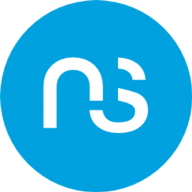

Debian and NethServer are competitors in the server operating systems category, each with unique strengths. Debian is often seen as the more versatile option, but NethServer is favored for its tailored feature set in specific business environments.
Features: Debian offers an extensive software repository, high stability, and adaptability for a wide range of applications. NethServer stands out with its integrated web interfaces and advanced security features, providing more intuitive administration. Its focus on functionalities suited for small to medium-sized businesses differentiates it from Debian's more general-purpose approach.
Ease of Deployment and Customer Service: NethServer's graphical installation interface simplifies the deployment process, making it accessible to less technical users. It also provides responsive customer service. In contrast, Debian requires more technical know-how for deployment but benefits from a large community offering extensive problem-solving resources, albeit less centralized compared to NethServer.
Pricing and ROI: Debian is an appealing choice for those looking for a low-cost solution, thanks to its open-source nature, providing long-term cost savings. NethServer, with higher initial setup costs, tends to deliver better ROI in environments that leverage its specific capabilities and comprehensive support, balancing its feature set with operational efficiency gains.

Debian is a versatile and reliable operating system widely used for personal computers, servers, and embedded devices. It offers stability, security, and extensive software packages to meet the needs of developers, businesses, and enthusiasts.
Known for its robustness, Debian supports a wide range of hardware architectures, making it suitable for both desktop and server environments. It provides a comprehensive repository of open-source software, allowing users to tailor the system to their specific requirements. Its strong focus on security ensures timely updates, keeping systems protected against vulnerabilities. Debian's community-driven development ensures transparency and continuity, contributing to its reputation as a dependable choice in various computing environments.
What are the most important features of Debian?
What benefits can users expect from Debian?
In the tech industry, Debian is frequently deployed in server environments thanks to its stability and security. Educational institutions often use it for educational labs due to its cost-effectiveness and flexibility. It is also popular in embedded systems for its lightweight and customizable nature, allowing for tailored solutions in IoT and automation sectors.
NethServer is an open-source server solution that facilitates IT infrastructure management. Tailored for small and medium-sized enterprises, it streamlines the deployment of key services.
Designed with flexibility in mind, NethServer supports a broad range of applications and services while ensuring ease of use. It simplifies the management of a company's IT needs with a modular architecture, offering robust features without demanding extensive IT knowledge. With thousands of installations worldwide, NethServer has gained a strong user base thanks to its reliability and customizability. Its community-driven development model ensures continuous improvement and adaptation to emerging technologies.
What are the key features of NethServer?NethServer implementations vary across industries such as education, where its scalability and security are essential for schools managing diverse software environments. In healthcare, its reliable email and communications solutions support critical operations. Businesses seeking robust networking solutions can benefit from its extensive VPN and firewall capabilities, ensuring secure and efficient IT infrastructures.
We monitor all Operating Systems (OS) for Business reviews to prevent fraudulent reviews and keep review quality high. We do not post reviews by company employees or direct competitors. We validate each review for authenticity via cross-reference with LinkedIn, and personal follow-up with the reviewer when necessary.